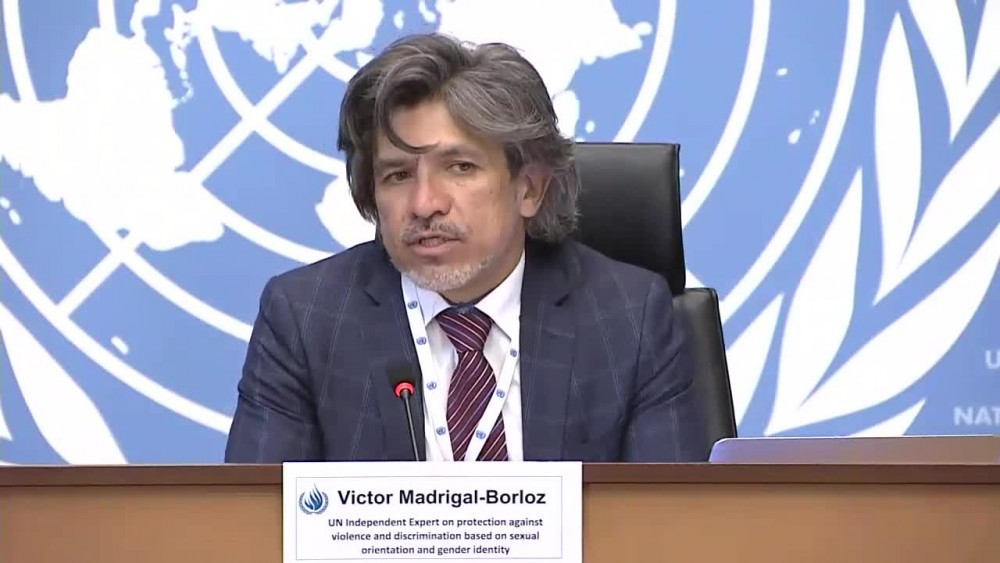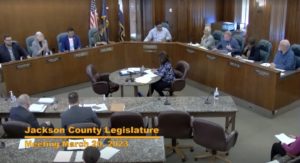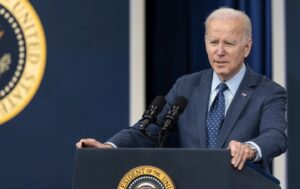United Nations: Freedom of religion must give way to LGBT practices
Freedom of religion must be made compatible with the rights of LGBT persons and practices, a United Nations official told the office of the High Commissioner for Human Rights.
In his latest…

Freedom of religion must be made compatible with the rights of LGBT persons and practices, a United Nations official told the office of the High Commissioner for Human Rights.
In his latest report to the 53rd Session of the Human Rights Council, Victor Madrigal-Borloz, the UN’s independent expert on protection against violence and discrimination based on sexual orientation and gender identity, said religious freedoms can often have severe and negative consequences for the personhood, dignity and spirituality of LGBT persons.
Madrigal-Borloz says LGBT people are excluded from religious communities “simply because of who they are.”
“Paying attention to the voices and practices of inclusive communities can help to shift narratives claiming that the exercise of freedom of religion or belief is incompatible with the equal enjoyment of human rights by LGBT persons,” Madrigal-Borloz told the UN Council.
Using the combinations of the words “violence” and “discrimination” nearly a half a dozen times, Madrigal-Borloz paints a picture of religious communities that seek to inflict punishment on LGBT persons.
It’s not the first time he’s painted that picture, either.
In May 2020, Madrigal-Borloz wrote a report for the UN condemning the practice of “conversion therapy,” which seeks to change a person’s sexual orientation to the traditional one established by biological sex.
In his report, he called private and public mental health-care providers, faith-based organizations, traditional healers and others who advocated for conversion therapy “perpetrators,” condemning faith-based interventions “that act on the premise that there is something inherently evil in diverse sexual orientations and gender identities.”
Madrigal-Borloz told the UN Human Rights Office that churches must be open to all, including LGBT persons, and that religious beliefs must change to accommodate LGBT communities.
“The right to freedom of religion or belief is a shield to protect the lawful manifestation of personal convictions, as well as to protect the right not to be part of a particular belief or subjected to human rights violations claimed to be justified by it,” he told the UN Human Rights Office.
His latest report would appear to contradict the UN’s own position on religious freedom in its Covenant for Civil and Political Rights (CCPR). The CCPR says religious freedom is also the freedom to not believe something or to dissent from a prevailing view.
“Article 18 [of the CCPR] protects theistic, non-theistic and atheistic beliefs, as well as the right not to profess any religion or belief,” says the CCPR.
Taking away the right to religious conscience in order to protect LGBT rights would arguably establish state control over religion, which many suspect some in the UN of wanting to do.
“Just as no state may force a religious community to alter its beliefs or internal faith practices, criteria for various religious positions, or membership requirement connected to, for example sex, (dis)ability, ethnicity, skin colour, caste, various forms of heterosexual practice, no creeds can be coerced into changing their current stand on same-sex sexuality or transgenderism, or even to merely accept LGBT people or people with pro-LGBT beliefs within their ranks at all,” said Religious Studies scholar Dag Øistein Endsjø.



